Discover the breathtaking locations and landscapes which feature in Netflix's latest feature release 'The Dig'.
Based on the 2007 book of the same name, The Dig, which stars Carey Mulligan, Ralph Fiennes and Lily James, is based on real people and real events taking place in 1939 at Sutton Hoo on The Suffolk Coast.
The book and film tell the story of landowner Edith Pretty and archaeologist Basil Brown, whose excavation of the Sutton Hoo site discovered the blueprint of an eighty foot Anglo Saxon ship, encompassing a treasure trove of over 250 artefacts including coins, gold buckles, weaponry, silver cutlery and a one of a kind, full face helmet. This one of a kind find, along with the other discovered objects confirmed to the team that they were looking at an Anglo-Saxon settlement at Sutton Hoo, previously believed to be Viking.
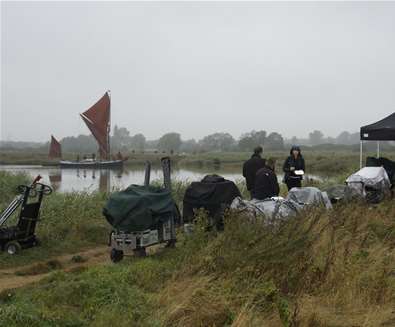
Filmed in 2019, Screen Suffolk sourced locations for the film, and whilst the burial mounds themselves were recreated in Surrey, the big open skies of The Suffolk Coast can be seen throughout. Director Simon Stone was adamant that the production came to Suffolk to capture the essence of the county:
‘You go to Suffolk once and visit the estuary lands and you see such a unique landscape, like a world that you just don't recognise as quintessentially English... and so I thought to myself this is a real opportunity to show a side of England that you don't usually see.... as you see it's (Suffolk) constantly through the film, we keep cutting back to shots that were shot in the environment where it took place.
Whilst you may not be able to visit right now, find out more about the stunning Suffolk scenes and see them brought to life when The Dig comes to TV screens from 29 January...
1. Deben Peninsula
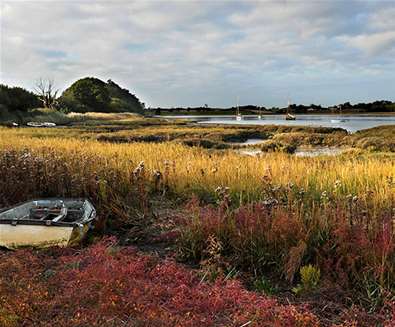
The Deben Peninsula encompasses the coast, countryside and forest between the Deben River to the South and the Alde & Ore Estuary the North.
It has a unique charm and varied natural beauty, its coastal heathlands contrasting with the undulating farmland to the west. Exploring the Deben Peninsula you'll find picturesque villages including Sutton, Shottisham, Hollesley, Boyton, Alderton, Ramsholt and Bawdsey.
The landscape quality of the area has been recognised nationally as an Area of Outstanding Natural Beauty. The significance of the Deben Peninsula coastline and estuary is further recognised as forming part of the Suffolk Heritage Coast and the upper reaches of the Deben River designated as Special Landscape Areas.
The area is also important for nature conservation and heritage with un-spoilt natural habitats and national heritage sites including, the Worlds First Operational Radar Station at Bawdsey; The Suffolk Punch Trust - an educational and environmental charity dedicated to breeding and preserving the Suffolk Punch horse; and of course, National Trust Sutton Hoo itself, which is open as a visitor attraction year round - a must visit during any trip to The Suffolk Coast!
2. Thorpeness Beach
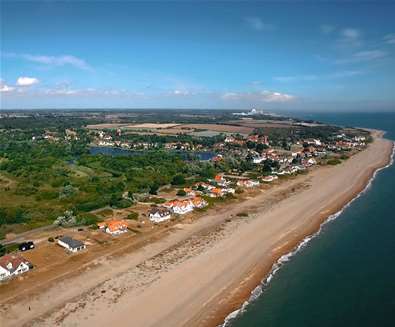
A popular beach on The Suffolk Coast, many arrive in Thorpeness and are struck by the enchanting and quirky village, famous for the Peter Pan inspired Meare, mock Tudor buildings and ‘House in the Clouds’.
The beach can be found by following the beach pathways heading over the dunes and towards the shore which consists of steeply shelving shingle, with some sand at low tide. Looking to the north you can see the coast stretch towards Dunwich, whilst the southern end of the leads to Aldeburgh, and forms the Haven Nature Reserve; a protected area of lagoons and reedbeds.
3. Aldeburgh Beach

Aldeburgh’s sand and shingle beach is one of the best known of all Suffolk's beaches. Backing on to this pretty seaside town, there is plenty to explore on and around the beach. Along the beach front are any number of quirky historic buildings including the 400 year old Moot Hall, a Martello tower, a converted windmill and a Norman church.
There is cultural heritage here too; composer Benjamin Britten is strongly linked with the town and there is a monument to him on the beach - the Scallop by Maggi Hambling.
4. Shingle Street
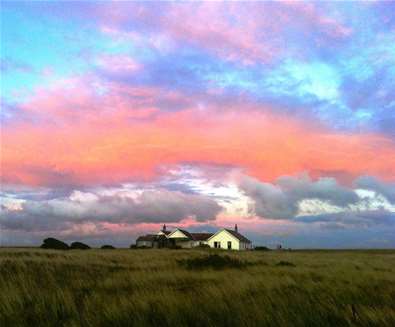
Shingle Street, ironically named because it's the only settlement in Suffolk without any streets, is a desolate spot which sits across the marshes on the far side of the village of Hollesley and at the mouth of Orford Ness. A haven for birds and wildlife bird and wildlife, the shingle beach forms a sheltered lagoon.
Wild, remote and exposed, Shingle Street and Orford Ness contain the ruined remnants of a disturbing past. Ranked among the most important shingle features in the world, this National Nature Reserve sees rare and fragile wildlife thrive where weapons, including atomic bombs, were tested and perfected.
Although currently closed due to the COVID-19 pandemic, when open, you can walk the trails which lead through coastal grazing marsh and vegetated shingle habitats to the sea, taking in wildlife, ex-military testing areas, buildings and displays. You can also take a short boat trip to the wild and remote shingle spit - the largest in Europe. The perfect place to get away from it all and escape the everyday when it is once again safe to do so.
5. Snape
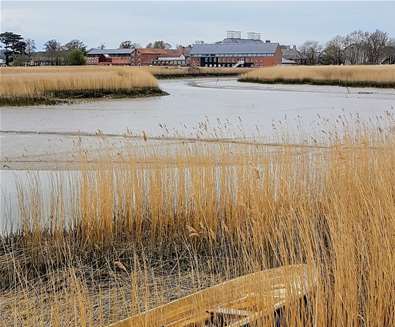
Used as a base for the film crew, the historic and magnificent Snape Maltings complex is the starting point for many wonderful walks taking in the reed beds, marsh and heathland - a landscape which was also a source of inspiration for Suffolk's famous composer Benjamin Britten.
Snape Maltings is one of the world’s leading centres of music, hosting outstanding concerts and festivals throughout the year, from the flagship Aldeburgh Festival – one of Europe’s top classical events – to the folk, world music and jazz of the Snape Proms. A hive of creativity and activity, Snape Maltings is also home to an array of shops, boutiques, galleries, cafes and restaurants and hosts the annual food & drink festival and monthly farmers markets.
Sitting alongside Snape Maltings is the Snape Marshes Nature Reserve. Located within the Suffolk Coast & Heaths Area of Outstanding Natural Beauty, there are a number of trails which take in the the River Alde, Snape Village and the Alde Valley. The countryside which surrounds the river here subtly changes from wetland to woodland, farmland to heath and is deservedly recognised as one of Britain's finest landscapes.
6. RSPB Boyton Marsh
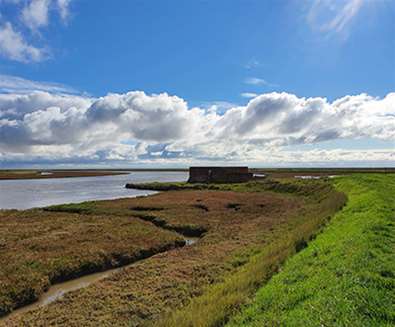
A vibrant coastal reserve, Boyton Marsh sits on the lower reaches of the Alde-Ore Estuary. The grazing marshes are the perfect place to spot birds of prey, barns owls, lapwing, avocet, redshank and widgeon; plus butterflies, dragonflies and nesting ducks and geese depending on the time of year.
7. Butley Ferry
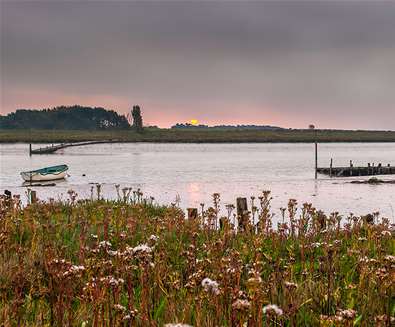
Featured in the opening scenes of the film, two of Butley Ferry's volunteer ferrymen and ferrywomen were also used as extras. The site was used as a base for filming the scenes of the ferry and Boyton dock.
It is thought that Butley Ferry started in the 16th Century, making it one of the oldest ferries in Great Britain. In the 20th Century, the invention of the bicycle and the motor car enabled new users to emerge – with everyone from walkers, cyclists, bird watchers and holiday makers enjoying this remote stretch of The Suffolk Coast.
Discover more...
Find out more about the real people that inspired 'The Dig' and the fascinating National Trust Sutton Hoo at https://www.nationaltrust.org.uk/sutton-hoo/features/digging-the-dirt-the-true-story-behind-the-dig.
Read more about Basil Brown’s life beyond Sutton Hoo with Suffolk County Council Archaeological Service's blog series http://bit.ly/2Kt4Yqo.
Watch the official trailer for 'The Dig'